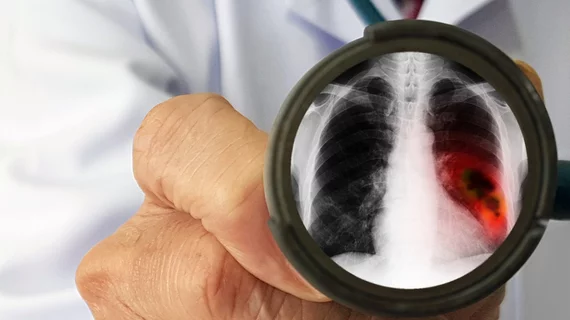Radiologists lead team effort to improve lung cancer screening among patients with serious mental illness
Radiologists are helping lead a team-based quality initiative in Boston, partnering with primary care and community clinics to improve lung cancer screening among patients with serious mental illness.
This group has historically struggled against America’s No. 1 cancer killer, experiencing significant disparities and a higher mortality rate than the general population. Wanting to address this challenge, Massachusetts General Hospital developed a patient-centered screening intervention for individuals with schizophrenia and bipolar disorder.
The educational initiative is showing promise, experts detailed Saturday in the Journal of the American College of Radiology. Of those who enrolled, 100% completed the intervention and 93% expressed satisfaction.
“Targeted [lung cancer screening] education and team-based approaches to screening are needed to decrease preventable mortality and prevent widening of disparities in lung cancer outcomes among individuals with [serious mental illness],” Efrén Flores, MD, officer of radiology community health and equity at Mass General, and colleagues wrote Aug. 7. “Radiology-led collaborative programs with psychiatry, primary care and community stakeholders are a feasible, acceptable and promising opportunity for radiologists to advance health equity in LCS.”
For their investigation, Flores et al. held three focus groups with experts in mental health, primary care and radiology. They used “rapid qualitative analysis” to adapt a lung cancer screening walk-through video on low-dose CT screening and smoking cessation handouts to the targeted population. Mass General also worked with two patients during their scheduled monthly visits to the community mental health clinic.
In focus groups with radiologists and other clinicians, providers recommended using “person-centered” language in the videos, adapting the demonstration video to patient concerns. Addressing paranoia and concrete thinking were both crucial, Flores and colleagues noted. All told, 15 of 30 eligible patients enrolled in the intervention, 100% of them completed the course, and 93% were satisfied with the offering. Enrollees reported a “significantly” greater lung cancer concerns after the intervention, but no other notable changes.
“For participants in this study, we believe the change in worry is positive and reflects internalization of risk and indicates the benefits of tailoring the intervention to meet the needs of individuals with [serious mental illness],” Flores and colleagues wrote.

